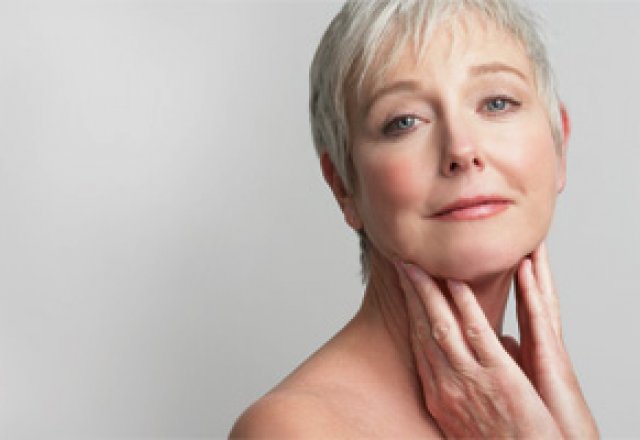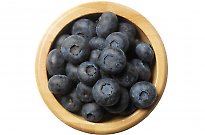
Common skin problems and their causes

Having trouble with your skin? Tried every lotion and potion on the market only to be continually frustrated by lack of results?
Chances are you may need to look inside for answers, as Naturopath Venus Bergner explains.
Loving the skin we are in is an important part of feeling happy and healthy. When our skin is showing signs of stress, it can be an indication that other parts of our body are under stress too.
As well as being our protective barrier to the external environment, our skin is a secondary detoxification channel. Our diet and lifestyle, stress, hormone imbalance, some medications, alcohol, allergies, food sensitivities, bacterial, viral, fungal and parasitic infections can all potentially contribute to an accumulation of excess inflammation and toxins. Over time, these can contribute to the poor health of our skin and can cause symptoms such as acne, rosacea, eczema, psoriasis and more. Many of us then become frustrated in our search for that miracle cream to make it all go away.
If you have recently been diagnosed with a skin condition, or have struggled with a chronic skin problem, you may need to look at your internal health for the solution. Addressing your skin health from the inside out can help clear up physical symptoms that may otherwise linger indefinitely. The added benefit is that with a well-functioning internal environment, you are bound to feel healthier throughout your body and mind.
Common skin problems and their underlying causes.
Acne
Most commonly, acne is caused by either a bacterial or fungal overgrowth within the digestive tract, creating intestinal permeability and increased toxic load within the body. Fungal infections can be very resilient and difficult to treat. Strict dietary changes in addition to antifungal treatments are the most effective remedies. It is important to have an infection correctly diagnosed, as unnecessary treatment and the reduced levels of beneficial bacteria within the body can make the condition worse over time.
Nutritional deficiencies such as zinc and essential fats can mean that the body is low in the protective nutrients for healing, repair and protection from inflammation. Toxicity and inflammation can also be attributed to other factors, such as irregular blood sugar levels and elevated testosterone.
Eczema
The most common causes of eczema and the associated allergies are nutritional sensitivities and internal permeability. Over time this creates a build up of toxins within the body, which can clog the detoxification and elimination channels. If the inflammation and toxins are unable to be effectively eliminated, this can create an overactive immune response, which can result in symptoms such as asthma or seasonal allergic responses such as hay fever, or eczema. Dairy and wheat can be the main dietary triggers, however in clinical practice I have found that a wide range of food can contribute to the aggravation of the symptoms, as can deficiencies in zinc, glutamine and essential fats.
Rosacea
Rosacea is a symptom of inflammation within the upper digestive tract. One of the most common causes of this skin condition is the Helicobacter pylori bacterial infection, which if left untreated, can also cause reflux and stomach and duodenal ulcers. Other risk factors include hypothyroid function, bowel toxicity, low-fibre diet, high sugar and fat intake, long term antibiotic therapy, low levels of beneficial intestinal flora and food sensitivities can also contribute to this condition over time.
Milia
These small cholesterol deposits found on the face are a sign and symptom of poor cholesterol elimination from the body. This can be due to diet and lifestyle as well as hereditary elevated cholesterol. Reducing overall dietary cholesterol intake, as well as assisting digestive function, including liver and gallbladder function, can help to improve the digestion and elimination of fats, and lower cholesterol levels.
Psoriasis
This autoimmune disorder originates from poor digestive function, detoxification and elimination. Food sensitivities, nutritional deficiencies such as zinc and vitamin D and low levels of the beneficial probiotic strains are associated with the condition. Psoriasis has been strongly linked with gluten sensitivity, with research showing an 82 percent improvement in patients who removed gluten from their diet for three months.
HYPERPIGMENTATION
The internal drivers of hyperpigmentation can be varied and include emotional stress, hormonal imbalance, allergies, autoimmune conditions and associated inflammation, heavy metal poisoning and low levels of vitamin D. Deficiencies in zinc, antioxidants and essential fatty acids can also cause and prolong hyperpigmentation.
Treatment results are possible by improving these nutritional deficiencies and addressing the other potential underlying drivers. It is also important to avoid getting sunburnt to prevent further damage. Changes may be slow and gradual so you will need to be patient in getting results.
What is the key to clear skin?
The most effective ways to look after your skin can be misunderstood. There is potentially a wider range of underlying internal factors that may be affecting your skin concerned with your diet and lifestyle.
Long term stress and nutritional deficiencies are a main driver behind the development of skin problems. Topical treatments, hormone replacements, antibiotic therapy and anti-inflammatory medications may only apply a short-term solution.
Identifying the potential internal drivers of your skin condition can help to improve your understanding of skin health. Specifically addressing the internal drivers and improving your body’s primary detoxification channels and immune function with naturopathic dietary and lifestyle advice can help to resolve skin symptoms and improve health for the long term. The key factors are improving, renewing and rebuilding your digestive system and immune systems to help your body to release the toxins more effectively.
NEXT: Dry skin brushing>>


